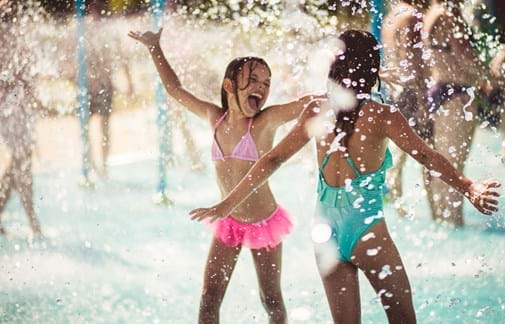The advent calendars are being opened day by day and tinsel is twinkling all over town. If you’re a kid, school is winding up and excitement is brewing as Christmas beckons with its gifts and celebrations. As a parent you want the best for your children. However, the festive season can inadvertently put extra pressure on parents to meet unrealistic expectations (your own, society’s and your family’s) in a bid to be an amazing parent and make Christmas ‘the best ever’.
 Knowing what to gift your children certainly takes up plenty of mental space, not to mention lots of open tabs on your laptop as you research the ‘perfect’ gift. It can get tricky and overwhelming with so many options available. Particularly now, with online shopping opening up the entire world as a potential shopping destination. Add to this, the ‘present paradox’, which is this: despite a very well stocked and carefully curated collection of gifted toys and games, all of which are at your child’s disposal at any given time, no amount of toys seem to be able to fill the ‘I’m bored’ void that children express, usually occurring at precisely the moment you’re about to sit down and get productive or have a nice relax.
Knowing what to gift your children certainly takes up plenty of mental space, not to mention lots of open tabs on your laptop as you research the ‘perfect’ gift. It can get tricky and overwhelming with so many options available. Particularly now, with online shopping opening up the entire world as a potential shopping destination. Add to this, the ‘present paradox’, which is this: despite a very well stocked and carefully curated collection of gifted toys and games, all of which are at your child’s disposal at any given time, no amount of toys seem to be able to fill the ‘I’m bored’ void that children express, usually occurring at precisely the moment you’re about to sit down and get productive or have a nice relax.
It turns out humans ‘adapt’ to what they have within their reach. So while a gift might be really exciting initially, we begin to get bored with it because it’s always there and once the novelty fades it no longer creates the dopamine hit of ‘brand new’ (hence kids being ‘bored’ despite a closet full of toys). Research shows that while the satisfaction we get from a new gift is initially equal to that of an experience, over time the joy we get from the physical item declines while the joy from the past experience can increase (as we recall the experience fondly in our minds). It would be reasonable to assume that a physical gift is more rewarding with ‘longer lasting’ enjoyment (because we can reach for it whenever we like) when compared with a one-time experience, but it turns out that isn’t necessarily the case.
Kerry Flatley, certified parent educator and manager of website Self Sufficient Kids* on the topic of experience vs physical gifts reflects, “experiences, on the other hand, become a part of who we are – as the old saying goes, we are the sum of our experiences.” While Dr. Thomas Gilovich, a psychology professor at Cornell University, New York who has studied the topic of money and happiness for over two decades suggests “We buy things to make us happy, and we succeed. But only for a while. New things are exciting to us at first, but then we adapt to them.”
 Gilovich’s study into the psychology of possessions and experiences has revealed that while we might enjoy owning nice things, they will always be external to us. However an experience we live and breathe will become memories imprinted into our brain, layered with the emotions connected with the experience.
Gilovich’s study into the psychology of possessions and experiences has revealed that while we might enjoy owning nice things, they will always be external to us. However an experience we live and breathe will become memories imprinted into our brain, layered with the emotions connected with the experience.
“Our experiences are a bigger part of ourselves than our material goods,” says Gilovich. “You can really like your material stuff. You can even think that part of your identity is connected to those things, but nonetheless they remain separate from you. In contrast, your experiences really are part of you.”
So what’s a parent to do? Keep gifting simple this year and consider giving experiences rather than physical gifts to the children in your life this Christmas. Here’s a few reasons gifting experiences makes sense:
- It teaches your children to see value in non-physical things
- It creates potentially richly rewarding experiences and fond memories.
- It creates opportunity to spend one on one time with your children (or nieces, nephews, grandkids etc.)
- Shared experiences develop connection leading to bonding between adults and kids, and kids with their siblings
- It supports local businesses which in turn keeps locals employed and keeps your money within the local economy
- It gets you and your family out of the house and doing something physical
- It could potentially get you and your kids out of your comfort zone, trying something new. This in turn helps to cultivate a growth mindset and resilience in children (and adults).
- It’s also a very sustainable and eco-friendly gift as it is essentially a ‘zero waste’ gift option (provided the experience is actually experienced)
- Reduce the clutter in your home by not bringing more ‘stuff’ under your roof
Experience gift ideas for kids
- A trip to a local water park
- A family holiday or weekend away
- A trip to a local theme park
- Climb the Sydney Harbour Bridge
- Day trip it to the Illwarra region for a Tree Top Walk or Zipline tour
- Tickets to see a concert, stage show or a circus
- A trip to the snow
- Music lessons
- Swimming, karate or ballet lessons
- A year pass to a local interactive centre such as a museum, science centre or attraction you know your child enjoys
- Indoor trampoline, bowling or mini golf passes
- Art, pottery or craft classes
- Cooking classes
Of course your imagination (and budget) is really your only limit when coming up with experience based gift ideas, but hopefully the above will open up the floodgates of inspiration.
Teenagers or older kids might prefer to have a say in the kinds of experiences they would like to receive as a gift. Rather than giving a pre-chosen experience or voucher, deposit an allocated sum into their own bank account labelled ‘experience gift’ and decide together what experience to purchase. Design your own voucher using an online template** and print it out so your child has something tangible to unwrap and hold in their hand on Christmas day. If your child is yet to open their own account, consider the award winning Australian Mutual Bank Young Saver Account which has just picked up another award, receiving ‘Best Children’s Saving Account’ in Money Magazine Australia’s Best of the Best Awards 2023.
No matter what you decide to gift your kids this Christmas, ensure that the real focus of the day is connection and celebration. Cultivate your own family traditions, spend quality time together, create fun memories and demonstrate to each other how much you care. After all, that’s the real reason for the season.
*an online portal for parents to navigate the world of parenting through the sense of self sufficiency. Visit www.selfsufficientkids.com to find out more.
** I find Canva a user friendly design platform for ‘non-designers’

Alison Gallagher is a freelance writer, resourcefulness expert, entrepreneur and mother of two young children. She has been featured in various publications including Stellar Magazine, Australian Health and Fitness Magazine, and Cleo Magazine. Alison is particularly passionate about sharing practical tips on how to live simply, sustainably and seasonally.







